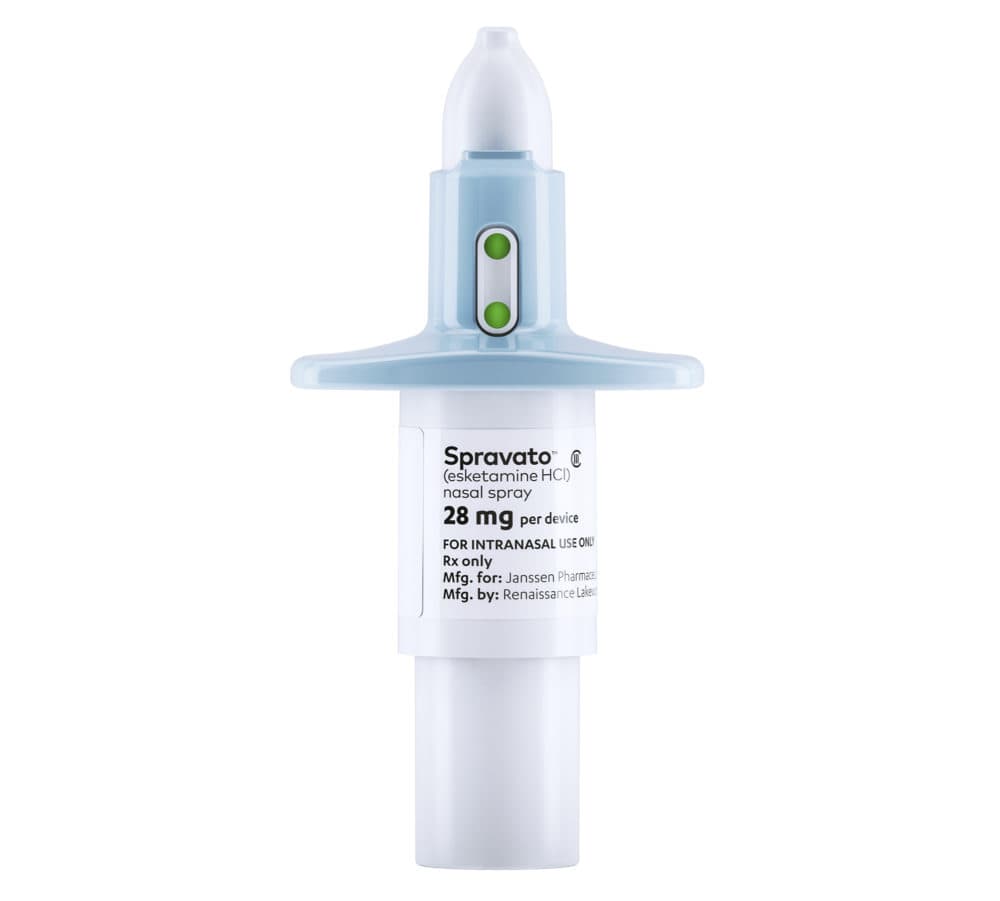Advertisement
Esketamine Approval 'A Huge Step' In Depression Treatment, But Still Much Unknown About Long-Term Safety
Resume
This week, the Food and Drug Administration approved a drug that's been called the most significant development in psychiatric treatment in three decades.
It's called esketamine and is derived from ketamine, an anesthetic that's also been abused as a club and party drug. The medication will be marketed under the name Spravato.
Esketamine has been approved as treatment for major depression that has not responded to traditional antidepressants.
Dr. Cristina Cusin directs the ketamine program at Massachusetts General Hospital. She spoke with WBUR's All Things Considered host Lisa Mullins about what this development means for mental health care. Hear their conversation above.
Interview Highlights
Dr. Cristina Cusin: It's a huge step to have the first molecule in 30-plus years — the first antidepressant approved that has a mechanism that is fundamentally different from what we have available now ... It's like a new generation of cancer drug, for example, or a new generation of antibiotics. It's a whole new class.
Lisa Mullins: And it's administered as a nasal spray — that's what the FDA approved — but patients cannot take it on their own at home. Why does a doctor have to be present?
Because at the beginning, you never know how somebody's going to react to ketamine. There may be adverse reaction, there may be dissociation or anxiety ... Probably over the years, the pattern of practice will change, the regulations will change. But the FDA, in the midst of the opiate crisis, wanted to make sure that patients were safe ... that there was no possibility of diversion or misuse of a substance that is potentially abuseable.
That's a good point that you mentioned there — misuse. If it is so easy to use, could patients who are particularly desperate be tempted to buy it illegally and use it at home, outside the medical system? And I wonder if that kind of potential for abuse is concerning to you.
That is present in most of the drugs we use. It's present for benzodiazepines, it's present for stimulants ... and for opiates for pain. But the same safeguards that are in place for opioids, that are in place for stimulants or for tranquilizers or for sleep agents, should be applied to ketamine until we know exactly how this drug works and who is going to have an adverse reaction.
What are the side effects — immediate and long-term?
Most of the side effects are during the time of the administration. We see, very commonly, some dizziness, drowsiness... feeling weird, feeling abnormal, some distortion, imperception of sounds or colors, and maybe feeling anxious — feeling that things are not exactly the way that they're supposed to be. And this usually goes away within an hour. We haven't noticed much in terms of long-term side effects. But because the drug is so new, there is a concern that there may be cognitive difficulties ... There is a lot of unknown about the chronic use of very low doses of ketamine or esketamine over a long period of time.
This segment aired on March 7, 2019.

